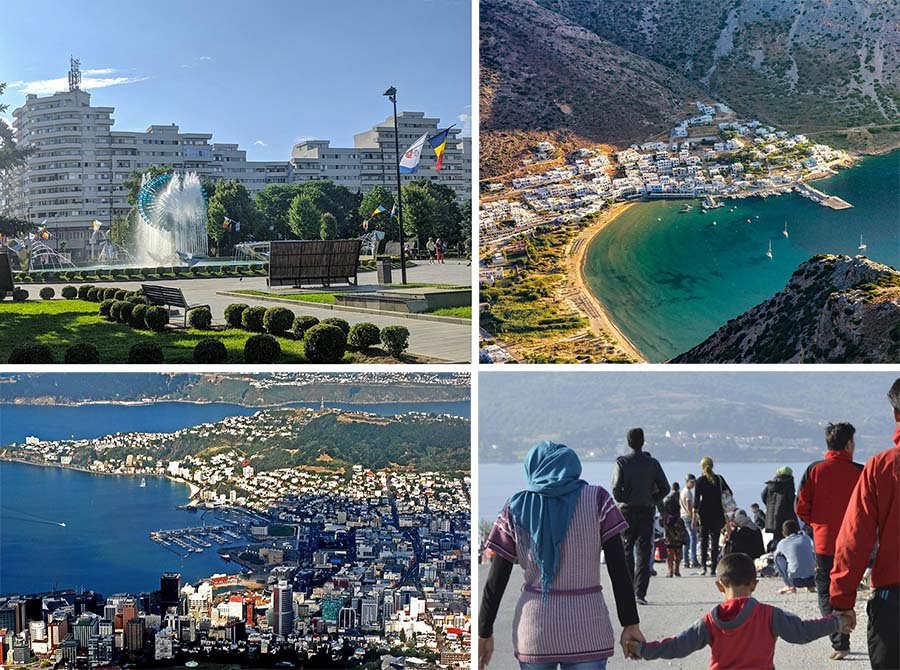Migration / Investments / Reviews / News / Spain / United Arab Emirates / Germany / France 08.09.2025
Migration News of the Week: Nomads, Investors, and Refugees

New destinations are opening digital nomad programs, investors remain welcome even in Europe where rules are tightening every year, while asylum seekers face the harshest restrictions.
New Digital Nomad Visa: Moldova Opens Its Doors
Starting September 20, 2025, Moldova will launch its Digital Nomad Visa program link. The visa allows foreigners working remotely to live in the country for up to two years, with the possibility of extension. It is among the most affordable digital nomad visa options in Europe, requiring a monthly income of only $1,500–$2,000 — lower than most European alternatives, except Montenegro.
The program targets three groups: employees of foreign companies, freelancers, and entrepreneurs with businesses abroad. Applicants must provide proof of stable income, good health, a clean criminal record, and a rental or property contract. Applications can be filed online or at the Bureau for Migration, with fees ranging from €40 to €80.
Authorities expect up to 1,500 participants annually, with an estimated economic impact of 280 million lei (€14.5 million). Each nomad is projected to contribute around €9,600 per year through housing, services, and taxes. Moldova hopes to attract talent from tech and creative industries, though questions remain about the country’s political and economic appeal.
Investor Programs: Tougher Rules in Dubai and Greece, Looser in New Zealand
In Greece, approvals for the Golden Visa program fell by 15% link, though the backlog dropped by nearly 5,000. July 2025 saw a record 2,772 cases processed, with some visas approved in under 30 days. Chinese nationals remain the top applicants (8,000+ visas), while Turkey showed the strongest growth, from 1,500 to 2,500 investors in a year.
However, stricter rules now apply: from September, the minimum investment threshold increased to €800,000 in prime areas and €400,000 elsewhere, with limited exceptions for renovation properties.
In contrast, New Zealand eased its restrictions, allowing foreign buyers in the Active Investor Plus program to purchase luxury residential property starting late 2025. Eligible homes are priced from €2.5 million, with around 7,000 such properties available nationwide — mostly in Auckland.
Meanwhile, Dubai continues to allow foreign property purchases in designated zones but introduced
a ban on power-of-attorney transactions. Payments must now go directly to the owner’s account at a UAE bank, eliminating the role of intermediaries or relatives.
Migrant Debate: Europe Hardens Its Stance, Spain in Focus
In Spain, anti-immigrant sentiment is growing. A Sigma Dos poll found that 78% support deporting foreigners convicted of crimes, while 92% said illegal migration should be addressed by the central government, not the regions link. Even socialist voters now align with far-right parties on this issue.
The Canary Islands, Ceuta, and Melilla report that the number of migrant children has tripled beyond local capacity. The government declared a “migration emergency” and promised to relocate 3,000 minors to other regions, despite conservative resistance.
The Spanish Interior Ministry highlighted that crime among migrants has actually fallen by 10%, contradicting far-right rhetoric. By contrast, hate crimes rose by 21% overall, with racially motivated crimes up 42%. Experts warn that xenophobia, not migrant crime, poses the greater societal threat.
Asylum Applications in the EU Decline Sharply
EU asylum requests are falling. In Q1 2025, the bloc processed 198,570 asylum cases, of which 66,315 were approved — one-third fewer than in late 2024 link
. Top applicants came from Afghanistan, Venezuela, and Ukraine, with most cases handled in Germany, France, Spain, and Italy.
Germany approved the highest number (15,590), followed by France (12,625) and Spain (11,565). Experts attribute the decline to tougher rules and expect the downward trend to continue.
Подсказки: migration, visas, digital nomads, investors, refugees, Greece, Dubai, Spain, EU, New Zealand








